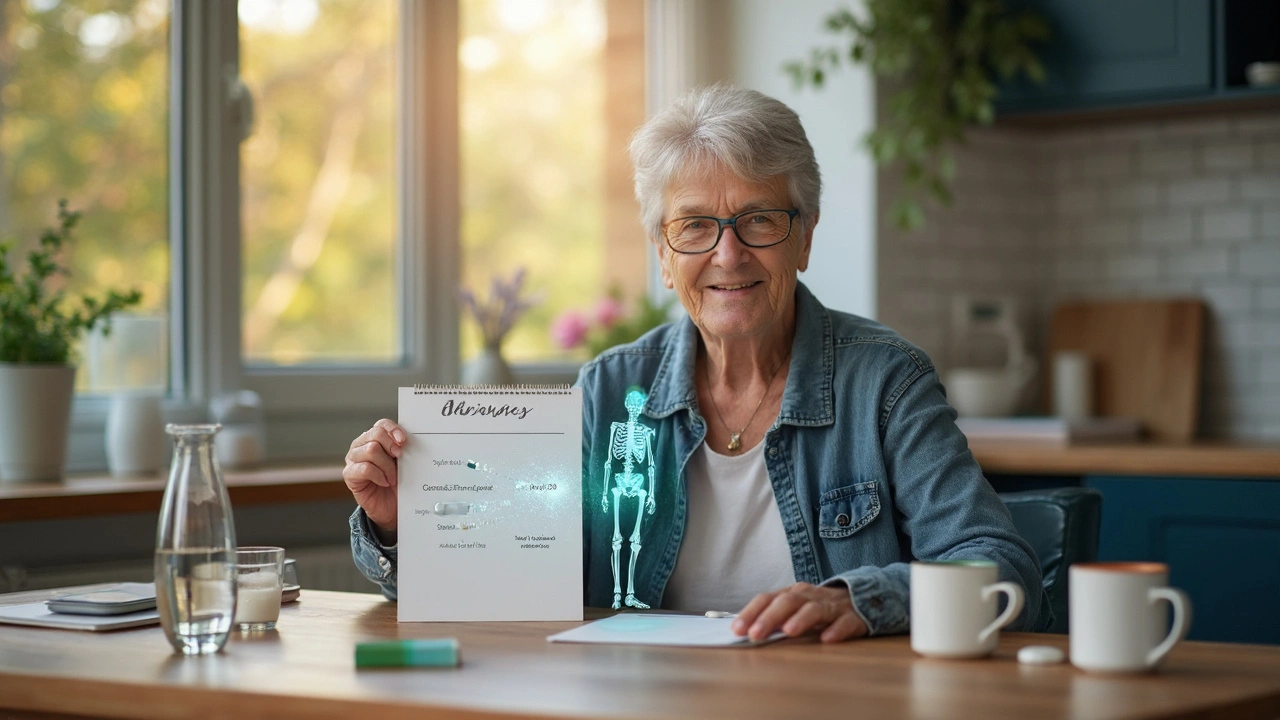Bone Health Made Simple – How to Keep Your Skeleton Strong
Ever wonder why some people seem to bounce back after a fall while others feel sore for days? The secret often lies in bone health. Strong bones protect you, support movement, and help you stay active as you age. Below you’ll find easy-to-follow steps that boost bone density without complicated jargon.
Nutrition That Builds Bone
The foundation of healthy skeletons is what you eat. Calcium is the star nutrient; dairy products, fortified plant milks, leafy greens, and almonds deliver it in absorbable form. Aim for about 1,000 mg a day if you’re under 50, and increase to 1,200 mg after that.
Vitamin D works hand‑in‑hand with calcium by improving absorption. Sunlight is the cheapest source—15 minutes on a sunny arm or leg can make a big difference. If you spend most of your time indoors, consider a daily supplement of 800–1,000 IU.
Magnesium and vitamin K2 are often overlooked but they support bone remodeling. Nuts, seeds, whole grains, and fermented foods like natto add these nutrients to your diet without extra effort.
Everyday Habits for Better Bone Density
Exercise isn’t just about losing weight; it’s a powerful stimulus for bone growth. Weight‑bearing activities such as brisk walking, jogging, or dancing create stress that signals bones to become denser. Try to fit at least 30 minutes of these moves into your week.
Strength training with dumbbells, resistance bands, or body‑weight squats targets the spine and hips—common fracture sites in older adults. Even two short sessions a week can raise bone mineral density noticeably.
Avoid smoking and limit alcohol to one drink daily; both habits accelerate bone loss. If you’re on medication that affects calcium balance, talk to your pharmacist about a possible supplement.
Staying hydrated helps cartilage stay supple, reducing joint strain that can indirectly protect bones. Aim for eight glasses of water a day and watch sugary drinks that may leach calcium.
Finally, keep an eye on your posture. Slouching compresses spinal discs and puts extra pressure on vertebrae. Simple reminders—like setting a phone alarm to straighten up—can improve alignment over time.
Our collection of articles under the "bone health" tag dives deeper into each of these topics, offering detailed guides on calcium supplements, vitamin D dosing, exercise routines, and lifestyle tweaks. Browse the list below to find the exact info you need, then start applying the tips today for a sturdier, more resilient you.

